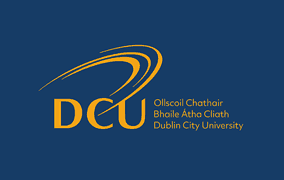 José Ramón Calvo-Ferrer holds a PhD in Translation and Interpreting from the Universidad de Alicante and an MA in Translation Studies from Dublin City University. He is a Senior Lecturer at the Universidad of Alicante, where he has taught different modules on Translation, English and teacher training since 2008. His research interests lie in ICT in general and video games in particular for second language learning and translator training. He has published various books and papers on video games, translation and second language learning in specialised journals (Interactive Learning Environments, British Journal of Educational Technology, ReCALL, etc.) and is a Visiting Lecturer at the Department of Language of Linguistics of the University of Essex, where he delivers lectures and workshops on video games and translation.
José Ramón Calvo-Ferrer holds a PhD in Translation and Interpreting from the Universidad de Alicante and an MA in Translation Studies from Dublin City University. He is a Senior Lecturer at the Universidad of Alicante, where he has taught different modules on Translation, English and teacher training since 2008. His research interests lie in ICT in general and video games in particular for second language learning and translator training. He has published various books and papers on video games, translation and second language learning in specialised journals (Interactive Learning Environments, British Journal of Educational Technology, ReCALL, etc.) and is a Visiting Lecturer at the Department of Language of Linguistics of the University of Essex, where he delivers lectures and workshops on video games and translation.
Gamifying the search for high-capability individuals in video game localisation
Video game localisation is a crucial aspect of the game development process. It ensures that players worldwide can comprehend and appreciate a game to its fullest potential. But what makes for a top-tier language tester in this domain? Language testers dive deep into gameplay, scrutinising translations for errors ranging from grammatical slips to critical misinterpretations of linguistic nuances. Their role mirrors that of proof-readers, requiring not just linguistic prowess, but also an in-depth cultural understanding and a certain familiarity with the video game under review. Yet, despite similar educational backgrounds, not all testers deliver equally. What intrinsic qualities then distinguish the best from the rest?
In pursuit of this question, a study engaging 136 Translation and Interpreting students from various Spanish universities in a gamified experience was performed. Participants played a game embedded with 30 deliberate localisation errors, representative of common challenges in the industry. These ranged from spelling mishaps, text overflows, and untranslated sections to the appearance of extraneous tags and variables. By mapping their error-detection rates against factors like reading speed, tech affinity, meticulousness, academic year, etc., the study aimed to decode the formula for success in video game language testing. This research not only introduces a novel method of sourcing and training potential talent in the field but also advances our understanding of the key predictors of excellence in video game localisation.

